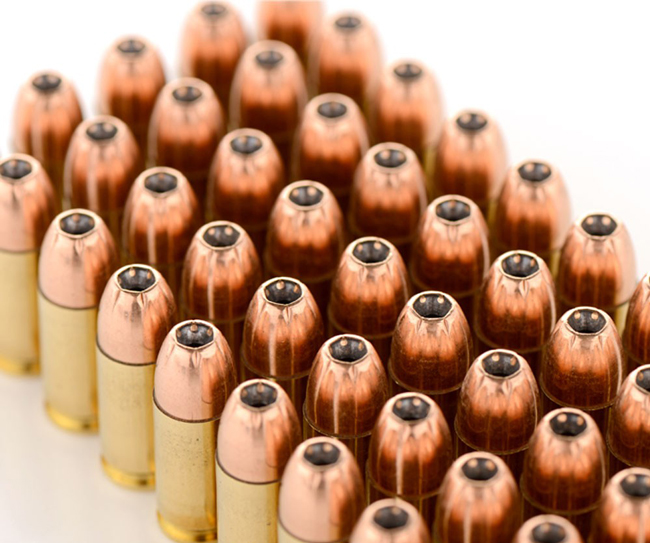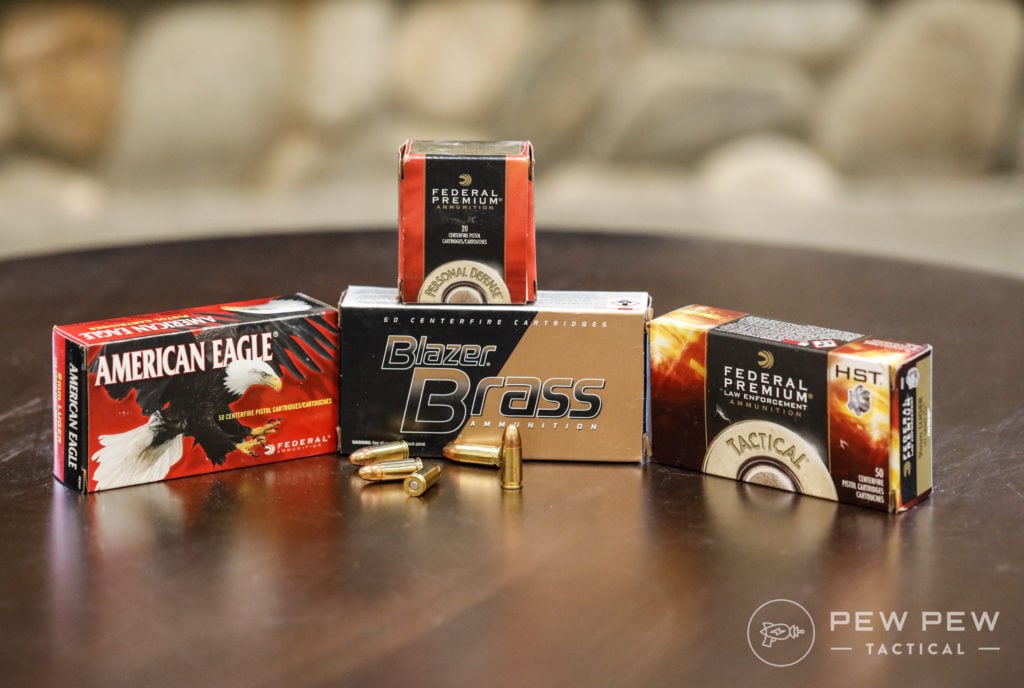

Common 9mm bullet weights normally available at most stores are 115, 124 and 147 grain. Bullet weight plays a part in decisions as to which box of ammo you buy.If you live in an area where shorts and T-shirts are pretty much worn year-round, you can get by with bullets that may not penetrate as far as some other types of ammo but may expand more violently. Conversely, if you are having to defend yourself in a cold climate where the bullet must get through a heavy coat or more, penetration becomes the deciding factor in what you buy. Climate has a hand in what ammo we buy.Some ammo is designed to perform well in service-length-barreled guns, while other rounds are designed to be shot from short-barreled pistols. Barrel length can be the most influential factor of the three.How do these things factor into our decision as to what ammo to buy? There are other factors that we need to take into account before we start looking at specific loads. Another word for cartridge comes from the military – round. We’ll look at some specific examples later.Īs partially explained above, a cartridge consists of a case, a bullet, some powder, and a primer.Ĭartridges for the 9mm are usually sold in boxes of 20 (higher-end self-defense ammo), 50 or 100 (target or practice ammo) and 500 or more (could be either type). This is intended to increase the bullet’s ability to incapacitate a hostile target by opening a larger wound channel. There are many different types and brands of JHP cartridges, but to keep it simple, we’ll just say that the opening is there to enhance expansion once the bullet hits the target by causing the bullet nose to upset and split the jacket into what can be described as “flower petals” designed to increase the bullet’s diameter in the target. This bullet consists of a lead or other core covered by a copper jacket with a carefully-engineered-and-tested opening in the bullet’s exposed, soft nose.

FMJ and JHP bullet-loaded ammo is often offered in bulk packs of 500 or more.

In ascending order from cheaper to more expensive, you usually will have the following types of bullets: lead (cast or swaged) non-jacketed bullets, then FMJ or coated bullets and finally the JHP or more exotic bullet types. Another name that manufacturers may use to describe this bullet is “metal case”, so if you see that term, you should know they’re talking about FMJ bullets.įMJ bullets are typically used in practice, competition or lesser-expensive ammo in order to save costs. Some pistol makers specify that only copper-jacketed bullets are to be used in their guns, with no lead bullets allowed according to warranty (most notable manufacturer to do this is Glock). The important point is that only copper touches the barrel’s rifling, unlike a cast lead bullet that has no metal coating. Sometimes, the bullet base is left exposed in order to cut manufacturing costs a bit. This bullet is covered totally in a copper “jacket”, which just means the entire bullet is encased in a metal covering. If you buy a box of loaded cartridges, then that's what they are - not just bullets but loaded ammo. If you buy a box of bullets, that's what they are - bullets. A bullet is just that - not the cartridge case itself. Hopefully, we all know what is a bullet is - the projectile that exits the barrel. We’ll look at bullets, cartridges and other factors that impact a round’s effectiveness. Each type of ammo is designed to do a specific job with very specific criteria.īefore we begin in earnest, let’s look at some cartridge basics so we’re all on the same page. Just like with your father's shotgun, sometimes you want bird-shot and sometimes you want a slug. The only problem with the 9mm is that there are so many round options to choose from and not all ammunition is created equally. Choosing the best personal defense for concealed carry ammo is important, so use this guide to narrow down your choices.Ĭoncealed carry aficionados, in particular, tend to prefer 9mm handguns due to their compact size and low recoil. It's widely accepted that the best overall self-defense pistol round is the 9mm. While we focus on 9mm self-defense ammo in this article, you will also find that the brands listed also include. Arguably, ammo selection is just as important, if not more important than selecting the gun itself. Selecting a good defensive round is one of the most overlooked but perhaps one of the most critical elements of selecting your tools for self-defense.


 0 kommentar(er)
0 kommentar(er)
